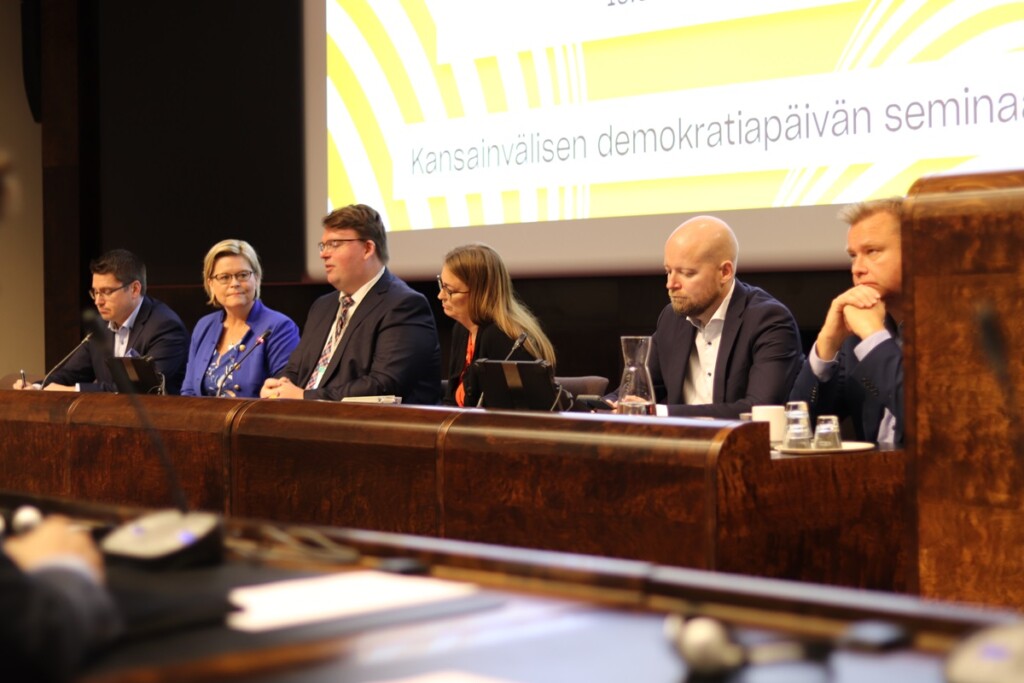Effectively functioning and responsible parties are a prerequisite for a representative democracy. No other actor can perform all the varied tasks vital to society that political parties have. Parties form the parliament and the government, channel the needs and opinions of the citizens into the political debate and provide the citizens an opportunity to participate in the decision-making.
In countries where democracy and multi-party system are still new, political parties are often weak and lack established practices for cooperation. They need support for developing their programming and for reinforcing co-operation across party lines. As parties are a significant channel for policy formulation and public participation, they are the key gatekeepers of politics. Hearing the voices of different groups of people is essential for the establishment of democracy. Women, young people, and various minorities are often underrepresented in politics. Their participation in the activities of parties should be supported to ensure that citizens are genuinely represented in decision-making.
A well-functioning multi-party system furthers the realisation of peace, development, equality, and human rights. In a multi-party democracy, the benefits of development are shared more equally than in other systems of governance, and political conflicts can be handled through peaceful methods.
Democracy cannot be exported, but it can and should be supported, as multi-party system provides a way towards a stable society that respects human rights.

